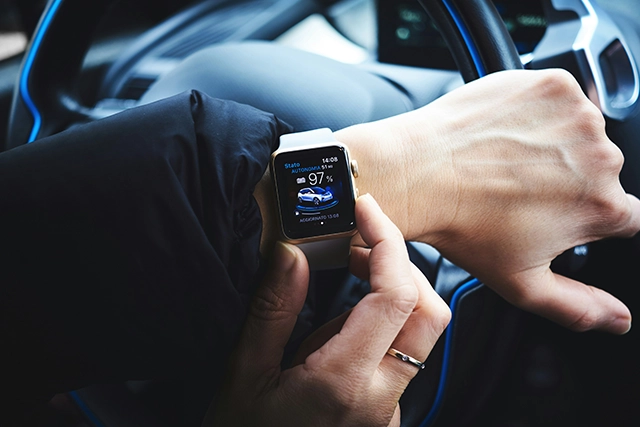Automotive data drives growth across industries, but privacy is paramount
Posted: August 23, 2024
The automotive industry gathers vast amounts of data through vehicle sensors, influencing not just cars but other sectors too. This is just one example of how data from one industry can drive innovation in others.
But with great power comes great responsibility. Risks arise when combining data sets, using personal data in ways people might not expect, and collecting personal data without appropriate notice or consent.
Here’s a look at the benefits of sharing analytics data across sectors – and the privacy considerations that underpin such activities.
Four examples of how automotive data can drive change across sectors
1. Insurance
The insurance industry can benefit greatly from big data collected from cars. Although AI has improved claims processing, real-time vehicle data can lead to more personalized insurance policies.
Data on driving habits can help insurers offer better rates to safe drivers, enhancing customer satisfaction and reducing accident rates.
2. Real estate
Automotive data is valuable for real estate developers, helping them choose sites based on traffic and transport data. For example, properties near public transport can increase in value.
Understanding local driving trends aids in city planning, improving infrastructure, and reducing pollution. For commercial real estate, data helps find locations that cut commute times and boost productivity.
3. Retail and eCommerce
eCommerce depends on efficient delivery. Automotive data helps optimize delivery routes, cutting costs and emissions.
Predictive maintenance data prevents vehicle breakdowns and prolongs their lifespan. Retailers can also use data to choose store locations and target advertisements effectively.
4. Smart cities
Automotive data is crucial for the development of smart cities, helping manage traffic and improving safety. Real-time data can enhance public transport by adjusting routes and schedules, reducing congestion and emissions. This leads to more sustainable urban living and better overall travel efficiency.
Key privacy considerations
Data protection and privacy law
Laws such as the EU and UK General Data Protection Regulation (GDPR) have worldwide influence and limit how companies may use and share personal data.
Before collecting personal data for analytics purposes or sharing it with other organizations, businesses must ensure they have a legal basis for doing so and that they comply with the GDPR’s principles of data protection, among other considerations.
Federal Trade Commission (FTC) oversight
In recent years, the US Federal Trade Commission (FTC) has been watching the automotive industry increasingly closely.
The FTC monitors data-sharing practices of connected vehicles due to privacy concerns. These include the collection of sensitive data, like location and biometric information, without proper consumer consent.
The FTC enforces the law against companies violating privacy standards. Such enforcement actions can be disruptive, resource-intensive, and expensive. Keep a close eye on the FTC’s cases and announcements to understand the agency’s enforcement strategy and legal interpretations.
State legislation
US states like California, New York, and New Jersey have enacted laws to protect against in-car data collection.
These laws aim to regulate the use of data from sensors and cameras in vehicles, filling gaps left by broader privacy laws.
Further such laws are likely to emerge in the near future, reflecting broader social concerns about data collection and privacy.
Consumer rights and transparency
Consumers often lack awareness of how their vehicle data is shared, and how such sharing can impact things like insurance rates.
To ensure compliance with consumer protection law, automotive companies must be clear about what data they collect, what they intend to use the data for, and how it might be shared with other businesses.
Balancing the benefits of data analytics with the right to privacy
Things are changing in the automotive industry in response to cultural and regulatory shifts around privacy.
Some car companies are updating privacy policies to give drivers more control over their personal data. Transparency about data-sharing is improving – but inconsistent across the industry.
Overall, increased regulatory actions and emerging laws mean consumers need better privacy protection and transparency in vehicle data practices
Vehicle data can revolutionize industries beyond automotive. By respecting people’s privacy, companies can achieve better efficiency and innovation while reducing risk and ensuring long-term success.

Read our research report: Smart cars, smarter consent
Our latest research provides:
- Insights into consumer attitudes toward data privacy in connected cars
- Emphasis on anonymization and transparency in automotive data practices
- Concerns and considerations of drivers with tech-enabled cars
- Exploration of the types and extent of data collected by smart vehicles
- Identification of steps automotive makers can take to build and maintain consumer loyalty and trust
- Relevance of granular consent options in influencing consumer choices
- The overall demand for greater transparency within the auto industry regarding data practices
- The need for reassurance regarding the adequate anonymization of user data

